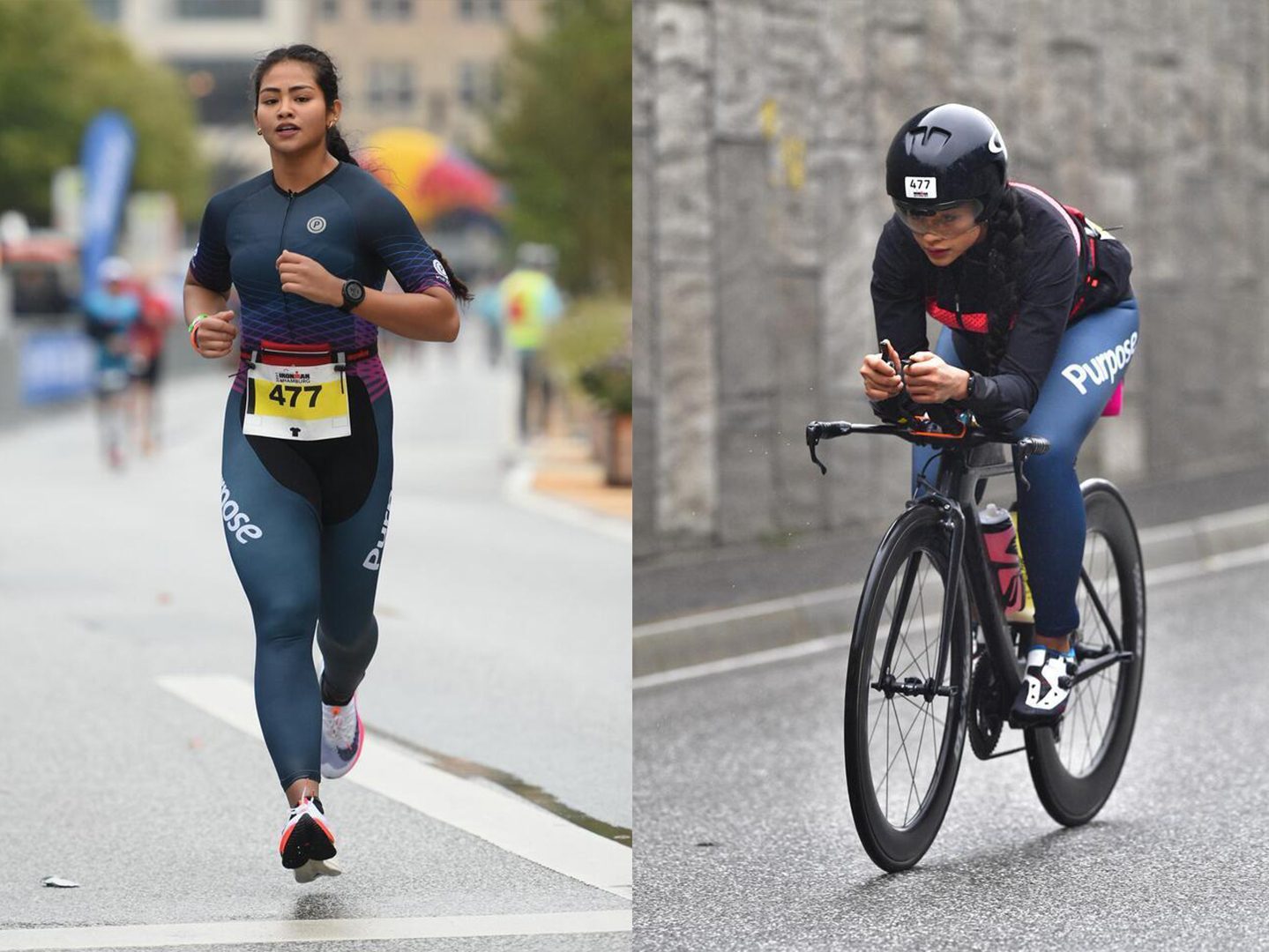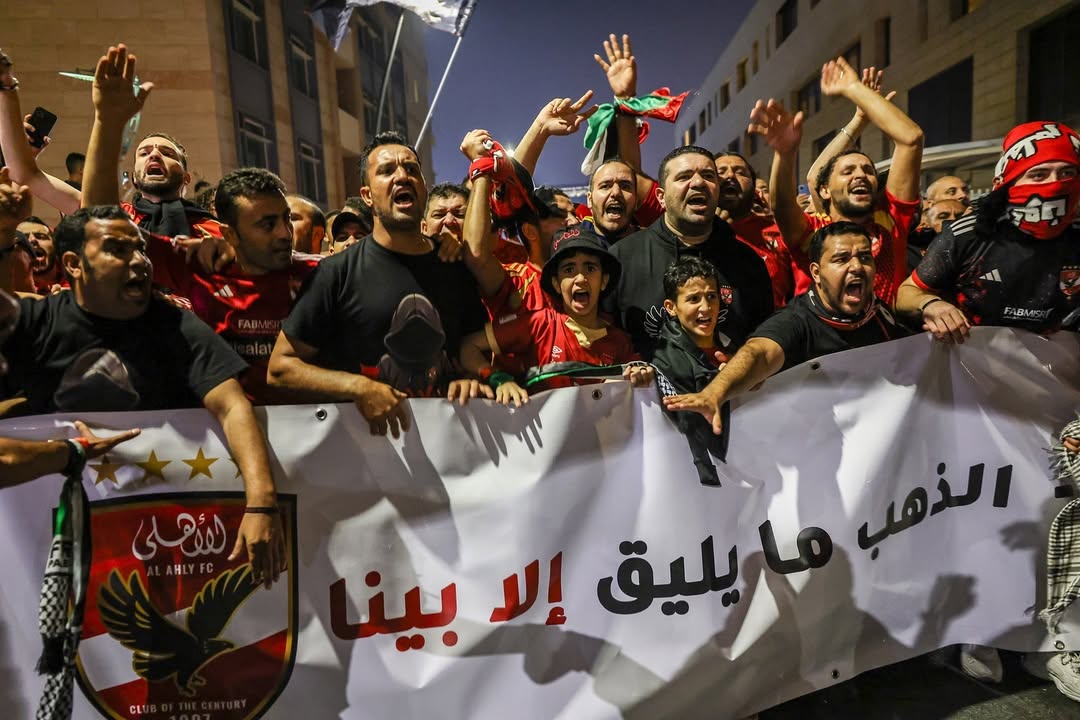On August 29 2021, Lolwa Almarri crossed the Ironman Hamburg finish line, becoming the first-ever Qatari woman to complete a full distance triathlon.
Swimming for 3.8 kilometres, immediately getting on a bike and riding another 180, topping that off with a marathon, then finally hearing the words “You are an Ironman”; from start to finish, a first Iron distance is a memory for life in any triathlete’s career.
But Lolwa isn’t just any triathlete. In fact, until last December, she wasn’t a triathlete at all – a cross-fitter, a mountain walker while studying biomedical science in the UK, but not a triathlete. She did short runs but didn’t swim or own a bicycle. Then, impressed by the endurance exploits of Hichame Moubarak, she set out to pay the inspiration forward.
A more conventional Ironman journey is via a love of one or more of triathlon’s component disciplines. You cycle, run or swim. You put them together. You enter a short race, then a longer one, and some will go further to set their sights on an Ironman.

The World Triathlon Corporation, owners of the brand, even added a stepping-stone that has overtaken the commercial success of its big brother. The half-distance Ironman 70.3′ has allowed more endurance junkies than ever before to stake a claim on being an Ironman, but the real deal remains far less common.
Lolwa’s motivation wasn’t the challenge of completion, but the clear intent to publicly define what it means to be a Qatari woman perhaps explains why she achieved what she did in a mere eight months.
The very strength of Ironman’s brand and appeal made it her chosen vehicle to make her case. “I’m doing this for my daughter,” she states, “I want her to see me as something more than a job and a mother”.
Eight months to achieve what others spend years building up isn’t considered a long time.
It took three meetings with Doha-based coach, Gerda Dumitru, to convince her to support the mammoth task of turning someone who struggled to swim the length of a pool into someone who could navigate 3.8 kilometres in open water, let alone the rest.
“I warned her, ‘This is not a joke, this is high risk, it’s not a joke’, but she had this fire in her eyes, and it convinced me,” Gerda recalls.
The relationship developed with both athlete and coach learning from each other. Lolwa borrowed a two-size-too-big bike and started training. Some days Gerda would question why she hadn’t completed the five hours of graft that she had prescribed, and Lolwa would reply defiantly, “When? I work in a lab in Hamad hospital during a pandemic. When could I do this?”
Nevertheless, Lolwa describes their relationship with passion.
“We were the dream team! I had so many doubts, but she knew exactly what to say to motivate me.” For her part, Gerda is in deep admiration of her protégé as an athlete: “She is so driven and fierce, but with that, she has good intelligence and stays collected. She has overcome much more than simply learning how to be a triathlete.”
Covid-19, of course, threw up other obstacles.
At times, with public pools closed, training was in a nine-metre pool, swimming on the spot with elastic attached to her waist.
In addition, a lot of her marathon training had to be indoors and, as Qatar’s summer hit, there was little opportunity to swim in the sea to learn the vital triathlon skills of heading in a straight line while dealing with currents and the chop from other athletes in close proximity.
In fact, race day was the first time she had any experience of wearing a wetsuit. Triathletes will understand the enormity of that, but others can perhaps imagine running a half marathon in new shoes, one size too small. To novices, swimming wrapped in neoprene is as different as breaststroke is from freestyle.
Then, just one week out from day zero, the virus played its trump card. Ironman Kazakhstan was cancelled due to rising infection rates there. Lolwa couldn’t wait. She had work commitments, and she needed a replacement with a strong chance of going ahead.
The German race just three weeks later was a good candidate but would throw up challenges for which they hadn’t prepared.
However, both Gerda and Lolwa also highlighted the positives of Covid: the motivation it has brought and the new communities of women who have discovered cycling, running and other outdoor exercises.

Ironman is hard for everyone. It is a long day (Lolwa’s time was 13 hours 27 minutes), but unlike shorter, more intense races, there is plenty of time to appreciate the scenery, atmosphere and crowd support. Lolwa describes it as the most beautiful experience, “At the start I was nervous, but I could tell myself, I know I’m going to have fun. I know I’m going to enjoy it.”
And enjoy it she did. “I loved the swim!” she says. “Even though there were dead fish in the water and I hadn’t swum there before because my coach didn’t want me to get sick!”
Hamburg is genuinely a race that showcases its host. Those dead fish were floating in lakes adjacent to the historic city centre and Hamburg’s massive port. “On the bike, it was cold, windy and raining, and I’ve never ridden in those conditions before, but the course goes all around this beautiful city, and my coach made sure I had the right clothes.”
After six and a half hours on the bike, the run would come. Often the most challenging part. “I didn’t take it seriously at the start – chatting, taking pictures – but then an Egyptian man told me I can still enjoy but run faster, and I started to increase my pace and take it seriously. In the last ten kilometres, I was trying to pass a French lady, and we had so much support from the crowds. I was so happy. I carried such pride in my heart!”
If Lolwa paints a rosy picture, perhaps that is the real appeal of Ironman. Nobody remembers the hurt, only the joy.
Gerda fills in some of the blanks, “She went to the race very scared and overwhelmed, but she did everything I asked of her. Her swim was within a few minutes of the 1 hour 35 minutes we planned. I told her to hold 27 to 28 kph on the bike, and she did that even though she is capable of pushing harder. You can see in her split times where she lost her race food after 130 kilometres on the bike, so at the beginning of the run was experiencing some real gut trouble. However, after she vomited, she was able to run well again.”
Lolwa wanted to make a statement and inspire her peers – a feat she believes she has achieved.
The young Qatari is now looking forward to the Qatar National Triathlon Series events when they start in October, humbly acknowledging, “These distances are better for me!”.
She begins with a message for Qatari Women but concludes with some words for anyone confronting a challenge. “You will never be ready. Don’t wait for the right moment. Take your caffeine and train!”
The Qatar National Triathlon Series starts on October 30th. For a calendar of all local events, see www.qatartriathlon.org
Follow Doha News on Twitter, Instagram, Facebook and Youtube







